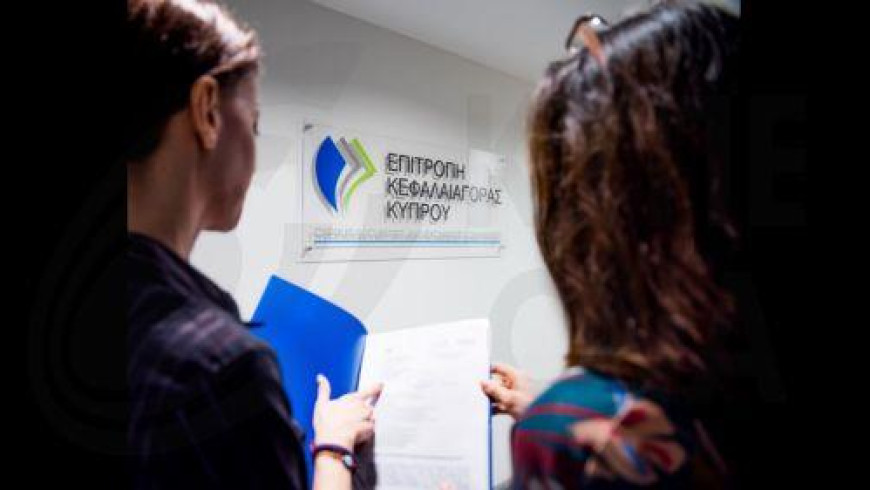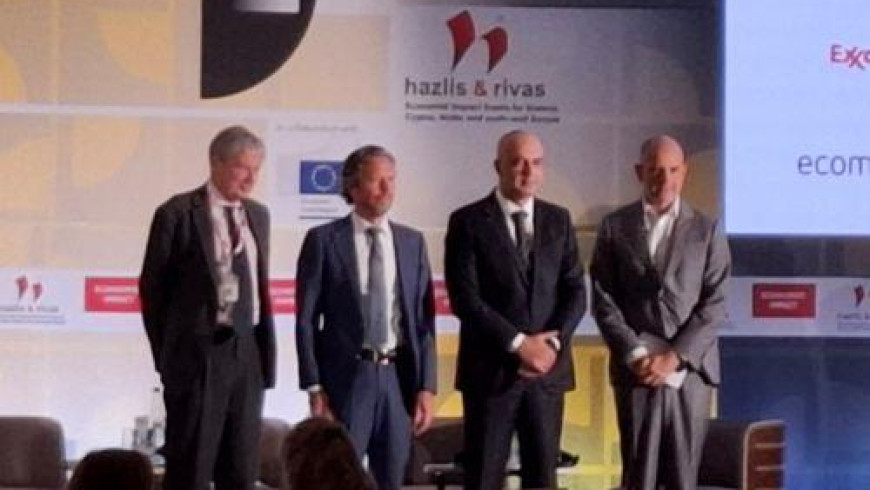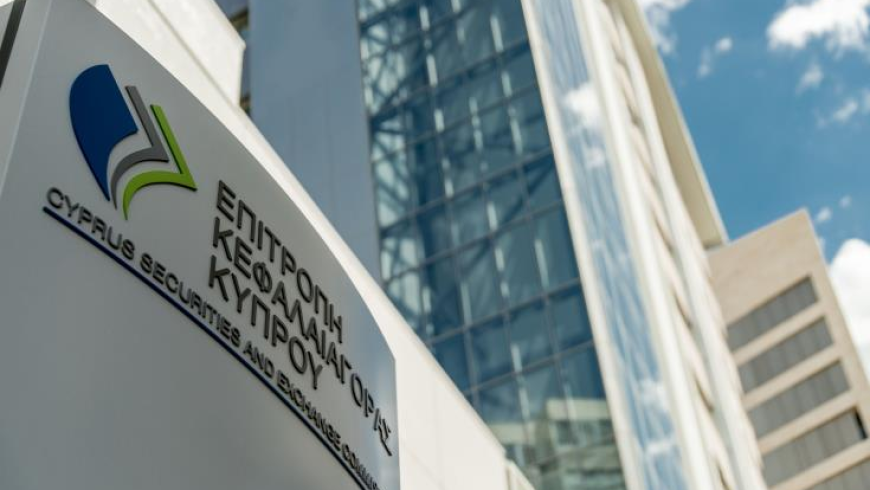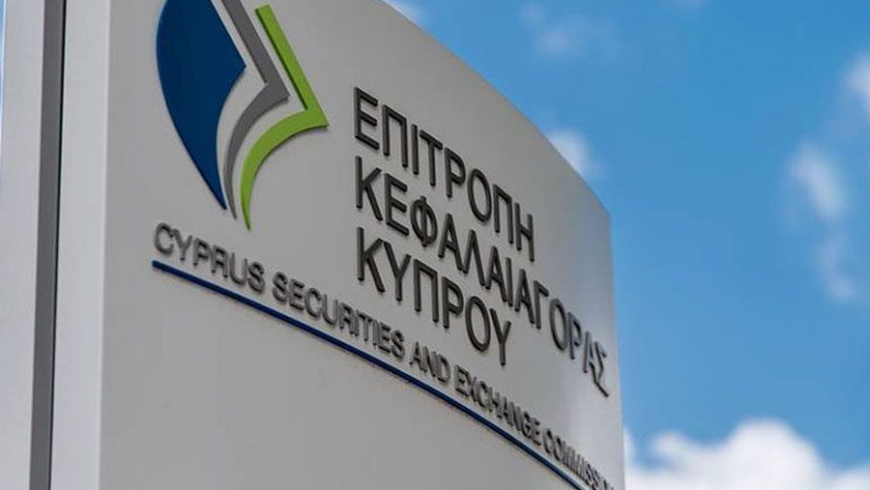
The increased expectations for a deal between Greece and its creditors before the end of May give a boost to the market.
The Athens Stock Exchange today records a significant increase while the banking stocks enjoy big gains.
Yesterday the Greek Prime Minister Alexis Tsipras stressed that Athens is in the final stage to reach an agreement with the international creditors.
At last night's general meeting of the companies and industries association (SEV), Mr. Tsipras said that Greece is at a critical stage in the negotiations and that the government has demonstrated that it has worked “honestly and with dedication to reach this agreement”.
An agreement with its partners within a week is also seen as feasible by the Greek Finance Minister Yanis Varoufakis.
In a television interview on Monday night but also at the annual general meeting of SEV, he said “we are very close to reaching an agreement” and that he sees “no reason the negotiations not to have a positive outcome”.
The finance minister, however, added that “there are still three large thorns on the table”, the pension issue, the labour issue and the fiscal, that is, the objective that should be agreed with partners as regards to the primary surplus as a percentage of GDP.
On the other hand, one of the issues that he believes the partners will agree with is the changes in VAT coefficients and the way of its collection.
At the same time though members of the ruling party SYRIZA publicly express their disagreement with the government's handling with the international creditors.
The MP and economist Costas Lapavitsas in an interview talked once again about a return to the drachma.
He argued that if the country returns to the drachma, recovery will come within months, noting that the people are ready for a return to the national currency.
Responding to the finance minister who said it would be a disaster to abandon the euro, Costas Lapavitsas said the country has fallen into the trap of the common currency and wondered “if you find yourself with a foot caught in the trap, is it a disaster to try to break free? Is it better to wait to die?”
Agreement by the end of June
European Commission President, Jean Claude Juncker said he expects an international agreement unlocking emergency aid for Greece to be reached by early next month.
Asked whether he is optimistic about the prospect of an accord between the Greek government and its creditors, Juncker said: “yes, toward the end of May, start of June.”
Also, in his statements to Bloomberg, Juncker denied reports talking about a compromise plan aiming to unblock the Greek negotiations.
“There is no Juncker plan,” he said. “This rumor in the British and Greek press about a Juncker plan isn’t true.”
According to Bloomberg, Juncker also ruled out the possibility of an aid deal with Greece at a May 21-22 meeting in Riga, Latvia.
“Riga isn’t made for that,” he said. Meetings on Greece will take place “on the margins” of the summit in Riga, according to Juncker.
No to funding cut
At the same time, the German newspaper Handelsblatt expresses the view that the European Central Bank would not cut the funding line of the Greek banks, even if the country did not pay a tranche to the IMF.
Newspaper sources, relied on EU diplomats, say the ECB would not immediately cease its support to Greece if the country failed to pay a tranche to the IMF on time.
According to the report, the ECB could continue to provide emergency liquidity to the Greek banks, without even reducing the amount of aid, despite the nonpayment of the fund.
The ELA facility to Greece has so far reached a limit of €80 bn after last Tuesday the ECB increased the liquidity to the Greek banking system by €1.1 bn.
The ASE is currently recording gains of 3.66% to 855.31 points while FTSE is at 256.96 points and at +4.02%.
The banking sector is up 4.50% with the index climbing to 522.27 points.
National Bank puts on 2.42%, Piraeus Bank surges 5.36%, Alpha Bank soars 5.59% and Eurobank gains 5.71%.
The Bank of Cyprus stock in Athens is at €0.180 and at -1.10% while in the CSE it drops 1.10% to €0.180.
Meanwhile, the CSE general index is at 76.95 points and at -0.65% and FTSE declines 0.22% to 46.01 points.
Regarding the European stock markets, the shares record strong increases following the investment optimism left yesterday by Wall Street, with another record high for the Dow Jones and S&P 500 indices, while the correction of the euro against the dollar makes European shares more attractive.
FTSE100 in London is up 0.56%, CAC in Paris gains 2.01% and DAX in Frankfurt adds 2%.
The euro continues to fall against the US currency after the four-month high on Friday, recording losses of 1.03% to $1.1197.
The Athens Stock Exchange today records a significant increase while the banking stocks enjoy big gains.
Yesterday the Greek Prime Minister Alexis Tsipras stressed that Athens is in the final stage to reach an agreement with the international creditors.
At last night's general meeting of the companies and industries association (SEV), Mr. Tsipras said that Greece is at a critical stage in the negotiations and that the government has demonstrated that it has worked “honestly and with dedication to reach this agreement”.
An agreement with its partners within a week is also seen as feasible by the Greek Finance Minister Yanis Varoufakis.
In a television interview on Monday night but also at the annual general meeting of SEV, he said “we are very close to reaching an agreement” and that he sees “no reason the negotiations not to have a positive outcome”.
The finance minister, however, added that “there are still three large thorns on the table”, the pension issue, the labour issue and the fiscal, that is, the objective that should be agreed with partners as regards to the primary surplus as a percentage of GDP.
On the other hand, one of the issues that he believes the partners will agree with is the changes in VAT coefficients and the way of its collection.
At the same time though members of the ruling party SYRIZA publicly express their disagreement with the government's handling with the international creditors.
The MP and economist Costas Lapavitsas in an interview talked once again about a return to the drachma.
He argued that if the country returns to the drachma, recovery will come within months, noting that the people are ready for a return to the national currency.
Responding to the finance minister who said it would be a disaster to abandon the euro, Costas Lapavitsas said the country has fallen into the trap of the common currency and wondered “if you find yourself with a foot caught in the trap, is it a disaster to try to break free? Is it better to wait to die?”
Agreement by the end of June
European Commission President, Jean Claude Juncker said he expects an international agreement unlocking emergency aid for Greece to be reached by early next month.
Asked whether he is optimistic about the prospect of an accord between the Greek government and its creditors, Juncker said: “yes, toward the end of May, start of June.”
Also, in his statements to Bloomberg, Juncker denied reports talking about a compromise plan aiming to unblock the Greek negotiations.
“There is no Juncker plan,” he said. “This rumor in the British and Greek press about a Juncker plan isn’t true.”
According to Bloomberg, Juncker also ruled out the possibility of an aid deal with Greece at a May 21-22 meeting in Riga, Latvia.
“Riga isn’t made for that,” he said. Meetings on Greece will take place “on the margins” of the summit in Riga, according to Juncker.
No to funding cut
At the same time, the German newspaper Handelsblatt expresses the view that the European Central Bank would not cut the funding line of the Greek banks, even if the country did not pay a tranche to the IMF.
Newspaper sources, relied on EU diplomats, say the ECB would not immediately cease its support to Greece if the country failed to pay a tranche to the IMF on time.
According to the report, the ECB could continue to provide emergency liquidity to the Greek banks, without even reducing the amount of aid, despite the nonpayment of the fund.
The ELA facility to Greece has so far reached a limit of €80 bn after last Tuesday the ECB increased the liquidity to the Greek banking system by €1.1 bn.
The ASE is currently recording gains of 3.66% to 855.31 points while FTSE is at 256.96 points and at +4.02%.
The banking sector is up 4.50% with the index climbing to 522.27 points.
National Bank puts on 2.42%, Piraeus Bank surges 5.36%, Alpha Bank soars 5.59% and Eurobank gains 5.71%.
The Bank of Cyprus stock in Athens is at €0.180 and at -1.10% while in the CSE it drops 1.10% to €0.180.
Meanwhile, the CSE general index is at 76.95 points and at -0.65% and FTSE declines 0.22% to 46.01 points.
Regarding the European stock markets, the shares record strong increases following the investment optimism left yesterday by Wall Street, with another record high for the Dow Jones and S&P 500 indices, while the correction of the euro against the dollar makes European shares more attractive.
FTSE100 in London is up 0.56%, CAC in Paris gains 2.01% and DAX in Frankfurt adds 2%.
The euro continues to fall against the US currency after the four-month high on Friday, recording losses of 1.03% to $1.1197.














 3287.99
3287.99 1275.09
1275.09
